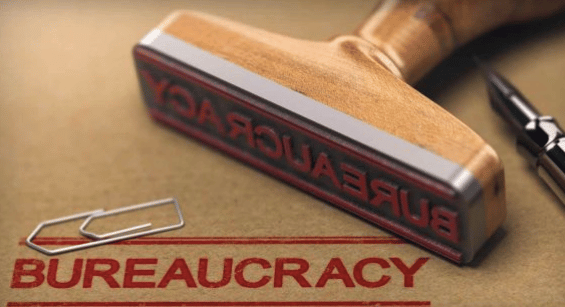From the start of the COVID-19 outbreak in the United States, state and local governments responded in various ways from issuing emergency orders—citywide shutdowns to school closures and beyond—but it’s the suspension of various laws and regulations that is exposing the unnecessary regulatory web that burdens businesses.
As often happens during emergencies, governors and mayors across the country have used executive power to waive laws and bypass regulations. This allows goods to get to the public quicker at lower cost, more service providers to enter struggling industries, and the market to respond to the crisis in countless other ways.
Lifting these regulations does not put public health or safety in jeopardy; if that were the case, they wouldn’t be lifted with such ease. But this should lead the public to question why the regulatory burdens exist at all.
Useless Regulations
In Texas, Gov. Greg Abbott waived oversize and overweight restrictions for commercial trucks and suspended requirements to register under the International Registration Plan or to obtain temporary registration, as long as the truck is registered in one US state.
Gov. Abbott also waived regulations allowing doctors to receive the same payment for over-the-phone telemedicine visits that they would for in-person visits for patients on state-regulated insurance plans.
Most notably, he waived state laws that prohibit alcohol industry trucks from delivering supplies to grocery stores saying, “by removing these regulations, we are streamlining the process to replenish the shelves in grocery stores across the state.” All of these moves allowed for the market to identify the needs of the public and fill them as quickly as possible.
In Boston, restaurants typically need a specific permit to provide carry-out service, but Mayor Marty Walsh lifted that requirement to allow for every restaurant to offer the service. Even New York City suspended its enforcement of illegal e-bikes during the crisis to accommodate for the influx of delivery orders, the state also moved to allow liquor-to-go.
Supply and Demand
Due to the increased demand, and ability for the supply chain to keep up with that demand, supermarket companies like H-E-B, Kroger, and Randall’s announced they’d be hiring thousands of additional staff. The newfound flexibility on trucking regulations means that grocers like H-E-B are deploying 1,300 trucks a day to continuously supply their stores.
In New Jersey, Bayonne ended enforcement of expired Resident and Driveway Parking permits. They also suspended issuing permits for what they consider “minor work,” like plumbing, electrical, mechanical, fire, and building. As long as contractors alert the city of the work they intend to do, the city will inspect it at a later date.
The ability to suspend these laws without fear of endangering the public opens the door to questioning their purpose. Many of these regulations appear to serve as no more than impediments to free exchange. If these measures exist simply to generate additional government revenue, the public should ask themselves, once the crisis has abated: should they exist at all?
Reprinted from the Free Thought Project.







